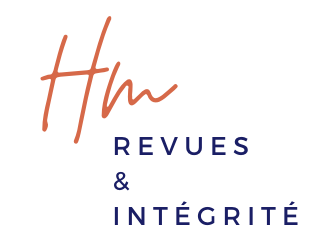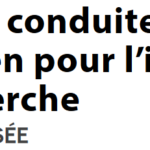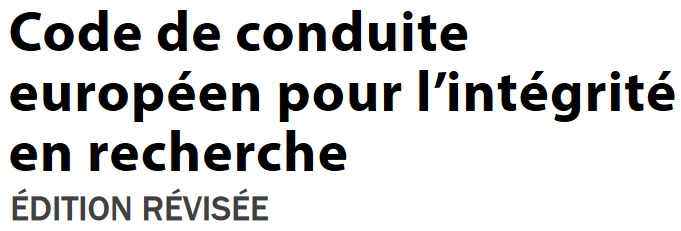Je ne suis pas toutes les initiatives sur les essais des traitements de la COVID-19, mais je suis impressionné par d’excellents projets qui ont été correctement financés (toujours insuffisamment très 
- Tout d’abord félicitons le leadership français du projet COVID-NMA. Il s’agit d’actualiser les connaissances sur les thérapeutiques et vaccins avec des méthodes rigoureuses de type revues systématiques. Passez du temps sur ce site ! Cet important projet est décrit dans les Annals of Internal Medicine en date du 15 septembre 2020, avec I Boutron (Epidémiologie clinique, Hôtel-Dieu, Paris) comme premier auteur… Bluffant, extra,… avec beaucoup de chercheurs pour faire ce travail, ouvrir les données et actualiser chaque semaine… L’image ci-contre est reprise de l’article en accès libre des Annals.
- The LIVING project est le résultat d’une collaboration internationale (leadership danois) qui a publié le 17 septembre 2020 dans PLOS One un article intitulé : Interventions for treatment of COVID-19: A living systematic review with meta-analyses and trial sequential analyses (The LIVING Project). La lecture est intéressante, et le travail semble de qualité.
- Une pré-publication du 18 septembre 2000 a de nombreux auteurs dont certains prestigieux, comme David Moher, Steven N Goodman, John PA Ioannidis, etc.. avec pour titre Mortality outcomes with hydroxychloroquine and chloroquine in COVID-19: an international collaborative meta-analysis of randomized trials.
Ma sélection n’est pas exhaustive. Il est logique que les bons projets prennent du temps.. bien que tout ceci soit très rapide ! D’autres living systematic reviews devraient apparaître.
Ce qui s’est passé sur le journal de 20 h de TF1 le 19 septembre est impressionnant : une excellente journaliste (Samira El Gadir) a mis en évidence les manipulations et expliqué qu’il n’y avait plus de place pour l’hydroxychloroquine !
Comment gober le fait que 3 500 publications soit le témoin d’une carrière réussie ? C’est avoir les mains sales.




4 commentaires
Mmmm Ioannes Ioannidis combien de publications ? Il ne doit pas être loin de certain immense scientifique ?
https://pubmed.ncbi.nlm.nih.gov/?sort=date&size=200&term=Ioannidis+JPA&cauthor_id=30537442
Bonsoir,
oui, JPA Ioannidis publie trop, c’est flagrant. Mais c’est encore un petit à coté du druide marseillais….
Cdlmt
Mais je reste un fan.
Déjà , c’est un Grec.
Et il est souvent sulfureux, bien que les volcans soient en Sicile.
Petite sélection qui peut donner envie d’aller voir …
Thousands of scientists publish a paper every five days. (!!!!!)
https://www.nature.com/articles/d41586-018-06185-8
Nature. 2018 Sep;561(7722):167-169. doi: 10.1038/d41586-018-06185-8.
Spin, Bias, and Clinical Utility in Systematic Reviews of Diagnostic Studies.
Clin Chem. 2020 Jul 1;66(7):863-865. doi: 10.1093/clinchem/hvaa114.
Should governments continue lockdown to slow the spread of covid-19?
BMJ. 2020 Jun 3;369:m1924. doi: 10.1136/bmj.m1924.
Using credibility ceilings to explore skepticism about observational evidence.
J Clin Epidemiol. 2020 May 8:S0895-4356(20)30188-8. doi: 10.1016/j.jclinepi.2020.05.004.
Coronavirus disease 2019: The harms of exaggerated information and non-evidence-based measures.
Eur J Clin Invest. 2020 Apr;50(4):e13222. doi: 10.1111/eci.13222.
True and false positive rates for different criteria of evaluating statistical evidence from clinical trials.
BMC Med Res Methodol. 2019 Nov 27;19(1):218. doi: 10.1186/s12874-019-0865-y.
‘Stealth’ corporate innovation: an emerging threat for therapeutic drug development.
Nat Immunol. 2019 Nov;20(11):1409-1413. doi: 10.1038/s41590-019-0503-1.
A user’s guide to inflated and manipulated impact factors.
Ioannidis JPA, Thombs BD.
Eur J Clin Invest. 2019 Sep;49(9):e13151. doi: 10.1111/eci.13151. Epub 2019 Jul 1.
PMID: 31206647 No abstract available.
9.
Single pivotal trials with few corroborating characteristics were used for FDA approval of cancer therapies.
J Clin Epidemiol. 2019 Oct;114:49-59. doi: 10.1016/j.jclinepi.2019.05.033.
Lethal news: The dexterous infiltration of news media by the tobacco industry agenda.
Eur J Clin Invest. 2019 Jul;49(7):e13125. doi: 10.1111/eci.13125. Epub 2019 May 18.
Retiring statistical significance would give bias a free pass.
Nature. 2019 Mar;567(7749):461. doi: 10.1038/d41586-019-00969-2.
Hypothesis, analysis and synthesis, it’s all Greek to me.
Elife. 2019 Feb 20;8:e43514. doi: 10.7554/eLife.43514.
PREDIMED trial of Mediterranean diet: retracted, republished, still trusted?
BMJ. 2019 Feb 7;364:l341. doi: 10.1136/bmj.l341.
Time to abandon early detection cancer screening.
Eur J Clin Invest. 2019 Mar;49(3):e13062. doi: 10.1111/eci.13062.
Cochrane crisis: Secrecy, intolerance and evidence-based values.
Ioannidis JPA. Eur J Clin Invest. 2019 Mar;49(3):e13058. doi: 10.1111/eci.13058.
Statins and Multiple Noncardiovascular Outcomes: Umbrella Review of Meta-analyses of Observational Studies and Randomized Controlled Trials.
Ann Intern Med. 2018 Oct 16;169(8):543-553. doi: 10.7326/M18-0808.
Perspective: Limiting Dependence on Nonrandomized Studies and Improving Randomized Trials in Human Nutrition Research: Why and How.
Adv Nutr. 2018 Jul 1;9(4):367-377. doi: 10.1093/advances/nmy014.
Are systematic reviews and meta-analyses still useful research? We are not sure.
Møller MH, Ioannidis JPA, Darmon M. Intensive Care Med. 2018 Apr;44(4):518-520. doi: 10.1007/s00134-017-5039-y.
The Proposal to Lower P Value Thresholds to .005.
Ioannidis JPA. JAMA. 2018 Apr 10;319(14):1429-1430. doi: 10.1001/jama.2018.1536.
Meta-research: Why research on research matters. Ioannidis JPA.
PLoS Biol. 2018 Mar 13;16(3):e2005468. doi: 10.1371/journal.pbio.2005468.
Larger effect sizes in nonrandomized studies are associated with higher rates of EMA licensing approval. Djulbegovic B, Glasziou P, Klocksieben FA, Reljic T, VanDenBergh M, Mhaskar R, Ioannidis JPA, Chalmers I.
J Clin Epidemiol. 2018 Jun;98:24-32. doi: 10.1016/j.jclinepi.2018.01.011.
How to survive the medical misinformation mess.
Ioannidis JPA, Stuart ME, Brownlee S, Strite SA.
Eur J Clin Invest. 2017 Nov;47(11):795-802. doi: 10.1111/eci.12834.
Hijacked evidence-based medicine: stay the course and throw the pirates overboard.
Ioannidis JPA. J Clin Epidemiol. 2017 Apr;84:11-13. doi: 10.1016/j.jclinepi.2017.02.001.
The Mass Production of Redundant, Misleading, and Conflicted Systematic Reviews and Meta-analyses. Ioannidis JP.
Milbank Q. 2016 Sep;94(3):485-514. doi: 10.1111/1468-0009.12210.
Why Most Clinical Research Is Not Useful. Ioannidis JP.
PLoS Med. 2016 Jun 21;13(6):e1002049. doi: 10.1371/journal.pmed.1002049.
We need more randomized trials in nutrition-preferably large, long-term, and with negative results.
Am J Clin Nutr. 2016 Jun;103(6):1385-6. doi: 10.3945/ajcn.116.136085.
The Challenge of Reforming Nutritional Epidemiologic Research.
JAMA. 2018 Sep 11;320(10):969-970. doi: 10.1001/jama.2018.11025.
Unreformed nutritional epidemiology: a lamp post in the dark forest.
Ioannidis JPA.
Eur J Epidemiol. 2019 Apr;34(4):327-331. doi: 10.1007/s10654-019-00487-5.
PMID: 30746584 No abstract available.